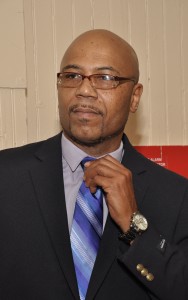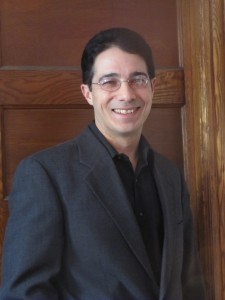These excerpts are from letters of support written by participants in the “History and Reconstruction” project described by Phillip Seitz in his “Project Showcase” post.
 William Webb IV, cohort member
William Webb IV, cohort member
I consider myself educated, well-rounded, well-spoken, and socially conscious, to name a few. However, a most recent experience and participation with ReConstruction, Inc. blew me away…
During every session, my thirst for more of this knowledge increased… I finally found what I searched for all my life: the real accounts of black history and data not recorded in the history books. Interestingly enough, the information did not evoke rage. On the contrary, it liberated my spirit. It confirmed what I knew intuitively, but could not explain or comprehend. That calm still voice resounding in my head, the cries of my ancestors pumping through my veins finally made a connection with me, and the reunification process began. Now I truly declare, “I once was lost, but now I’m found. I was blind but now I see.” This upgraded me; and allowed me to insert the missing piece of the puzzle into its proper place.
Click here to read William Webb’s full statement.
 David J. Silverman, participating historian
David J. Silverman, participating historian
These discussions have generated a new level of understanding between the participant historians and the cohort. Many historians desperately want to reach an audience beyond the academy and the university-educated, believing that a deeper understanding of the past is accompanied by a more sophisticated grasp of our own world and what we might do to improve it. The Reconstruction, Inc. program has been rare in allowing a group of historians to follow this principle, while also revealing just how far academic institutions have to go to make good on their claims to serve the general public. By the same token, the program has challenged the belief by some members of the cohort in an effort (one might say, a conspiracy) to hide their history from them. They have been introduced to a cross-section of historians eager to share and debate what they know and to start a conversation about what to do with that knowledge to improve modern lives.
Honest, rigorous history is often cruel. It shatters myths, hobbles pride, and makes easy dichotomies of absolute right and wrong, us and them, difficult to maintain. This kind of history has an essential part to play if we are going to continue to try to create a more human society.
Click here to read David Silverman’s full statement.



